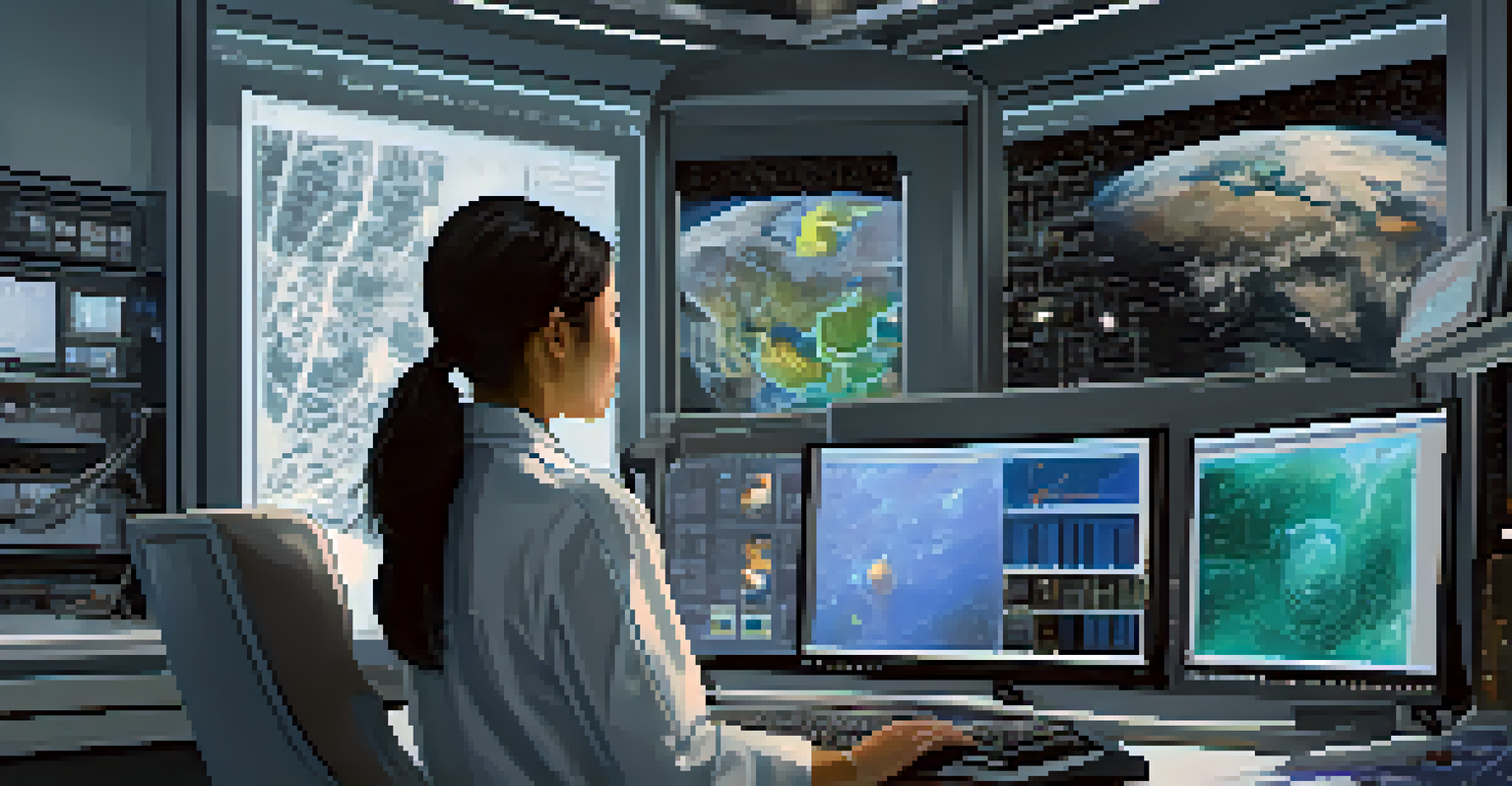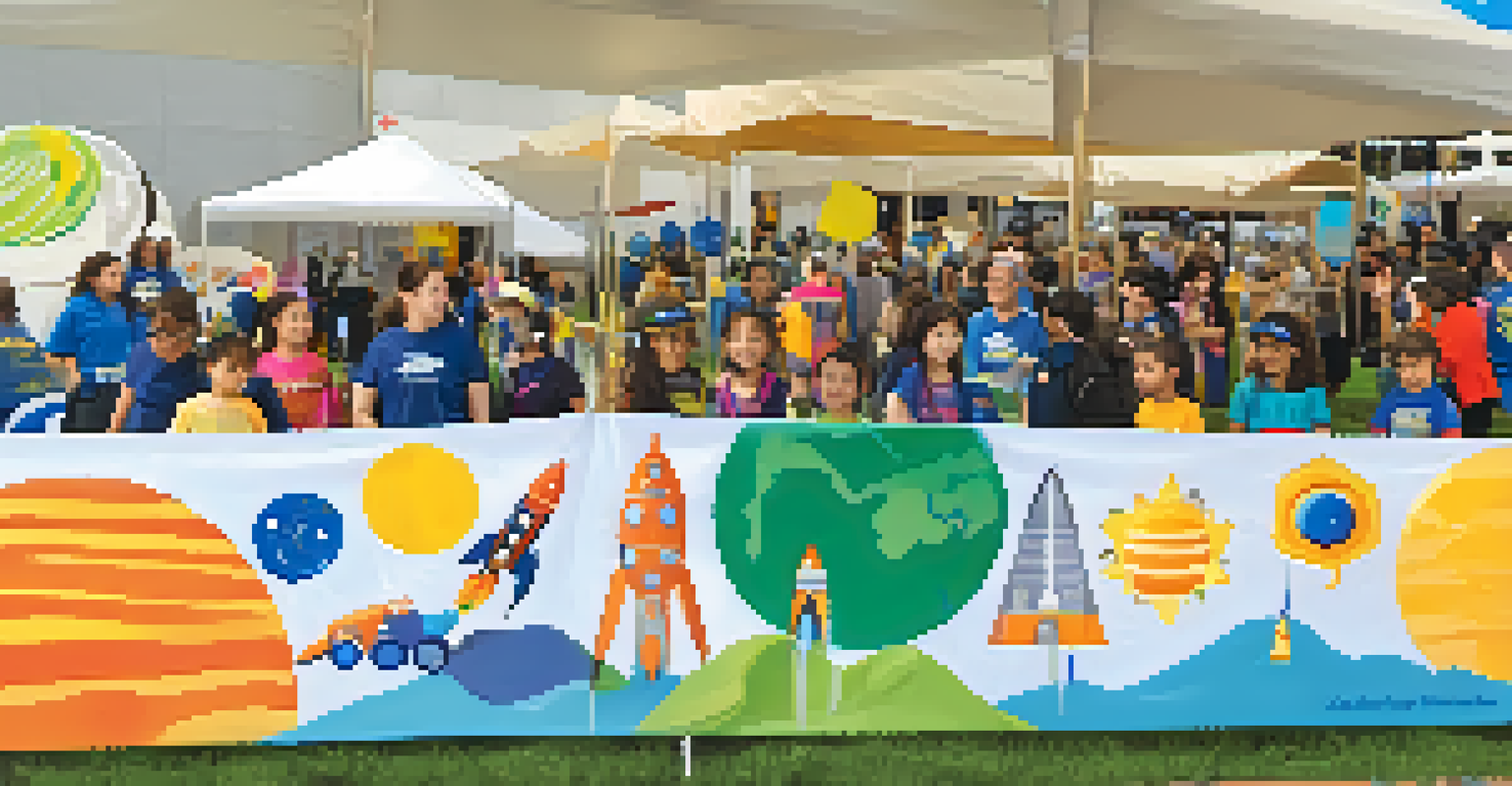The Influence of UC San Diego on Space Research

A Legacy of Innovation in Space Science
UC San Diego has a rich history of contributing to space research, dating back to its founding. The university's commitment to innovation has led to groundbreaking discoveries in astrophysics and planetary science. Notably, the Scripps Institution of Oceanography has played a pivotal role in studying Earth's atmosphere and its implications for space weather.
The important thing is not to stop questioning. Curiosity has its own reason for existence.
Over the years, UC San Diego has been home to numerous influential researchers who have advanced our understanding of the cosmos. Their work has not only enhanced our knowledge of celestial phenomena but has also informed satellite technology and space missions. This legacy continues to inspire new generations of scientists.
The collaborative environment at UC San Diego fosters interdisciplinary research, allowing experts from various fields to tackle complex problems related to space exploration. This synergy is essential for developing innovative solutions that can withstand the challenges of outer space.
Key Research Centers Driving Space Exploration
UC San Diego hosts several renowned research centers that focus on space-related studies. One of the most prominent is the Center for Astrophysics and Space Sciences, where researchers explore topics ranging from dark matter to the formation of galaxies. Their work often contributes to NASA missions and other space agencies.

Another important entity is the Jacobs School of Engineering, which collaborates on aerospace projects, including satellite design and technology. This hands-on approach enables students and researchers to apply theoretical knowledge to real-world challenges in space exploration.
UC San Diego's Legacy in Space
The university has a rich history of innovation in space science, contributing significantly to astrophysics and planetary research.
These research centers not only enrich the academic community but also provide practical solutions that impact our understanding of the universe. By developing cutting-edge technology, they help propel humanity’s quest for knowledge beyond our planet.
Collaboration with NASA and Other Agencies
UC San Diego has established strong partnerships with NASA, contributing to various missions and projects. This collaboration has led to significant advancements in space exploration, including the development of instruments used in missions to Mars and beyond. It's a testament to the university's role as a leader in space research.
Space exploration is a force of nature unto itself that no other force in society can rival.
Students and faculty often participate in NASA's educational and research programs, gaining valuable hands-on experience. This not only enhances their academic journey but also prepares them for careers in the aerospace industry. Such opportunities create a pipeline of talent essential for future space endeavors.
These partnerships exemplify the importance of collaboration in the scientific community. By working together, UC San Diego and NASA continue to push the boundaries of what is possible in space research.
Pioneering Research in Astrobiology
Astrobiology is a field that examines the potential for life beyond Earth, and UC San Diego is at the forefront of this exciting research. The university's scientists explore extreme environments on Earth to understand how life might exist on other planets. Their findings inform our search for extraterrestrial life.
The research conducted at UC San Diego helps shape missions aimed at discovering life on Mars and icy moons like Europa. By simulating conditions found on these celestial bodies, researchers can better predict where life might thrive. This work is crucial for future exploratory missions.
Collaboration with NASA
Strong partnerships with NASA have led to advancements in space exploration and provided students with hands-on experience in the aerospace industry.
The interdisciplinary nature of astrobiology at UC San Diego brings together biologists, chemists, and geologists. This collaborative approach fosters innovative thinking and allows for a comprehensive understanding of life's potential in the universe.
Educational Programs Shaping Future Scientists
UC San Diego's educational programs play a vital role in nurturing the next generation of space scientists. Through hands-on learning experiences and research opportunities, students gain the skills necessary to excel in the aerospace field. The university's emphasis on experiential learning sets it apart from others.
Internships and research projects allow students to work alongside leading experts in space science. These experiences provide invaluable insights into the challenges and rewards of a career in space exploration. Additionally, the university's strong network of alumni in the industry offers mentorship and guidance.
By focusing on practical skills and real-world applications, UC San Diego prepares its students to contribute meaningfully to space research. This commitment to education ensures that the legacy of innovation continues for years to come.
Innovative Technologies Developed at UC San Diego
At UC San Diego, researchers are developing cutting-edge technologies that enhance space exploration capabilities. From advanced imaging systems to novel propulsion methods, the university is at the forefront of aerospace innovation. These technologies not only improve mission outcomes but also have applications on Earth.
One example is the development of small satellites, or CubeSats, which have revolutionized space research. These compact and cost-effective satellites enable researchers to gather data from space without the need for large, expensive missions. UC San Diego's work in this area has made space more accessible to various research institutions.
Pioneering Astrobiology Research
UC San Diego is at the forefront of astrobiology, studying extreme Earth environments to inform the search for extraterrestrial life.
The ongoing research and development of new technologies ensure that UC San Diego remains a key player in the space industry. As challenges in space exploration evolve, the university's commitment to innovation will help pave the way for future discoveries.
Community Engagement and Public Outreach
UC San Diego recognizes the importance of community engagement in fostering interest in space research. Through outreach programs, the university connects with local schools and organizations to inspire curiosity about the cosmos. These initiatives aim to educate and excite the next generation about science and space.
Public lectures, workshops, and events allow researchers to share their findings with a broader audience. Such interactions not only democratize science but also help build a community of informed individuals who are passionate about space exploration. This grassroots approach encourages young minds to consider careers in STEM fields.

By engaging with the community, UC San Diego enhances public understanding of the complexities of space research. This commitment to outreach ensures that the wonders of the universe are accessible to everyone, nurturing a culture of exploration and discovery.